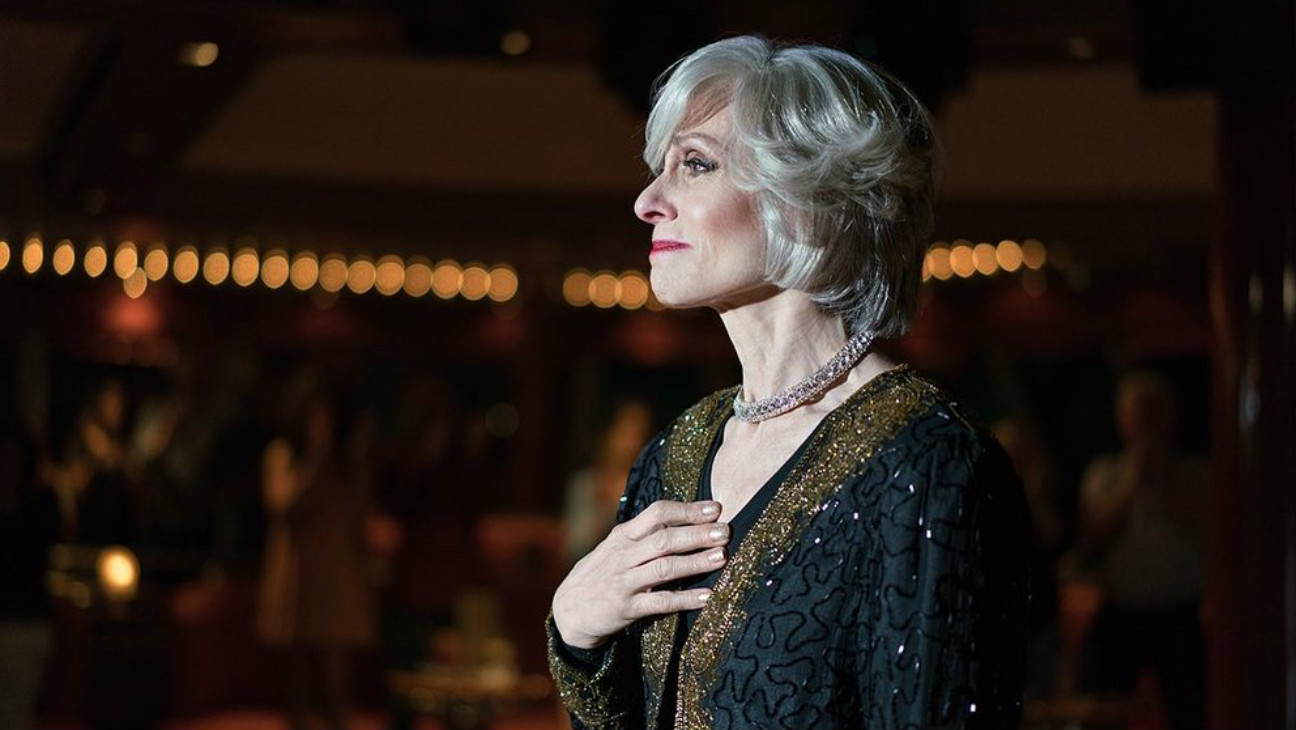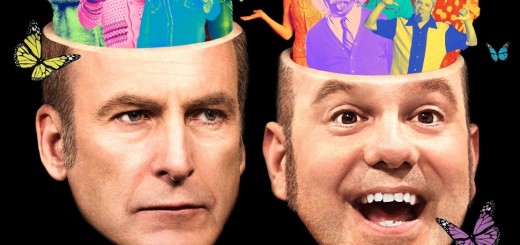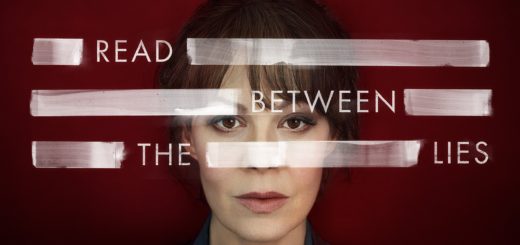TRANSPARENT Season Four Review

If you know our video games editor and I, it makes absolutely no sense that we’re loyal and fervent fans of Jill Soloway and Amazon’s golden child (blah, blah, blah, MOZART IN THE JUNGLE, I ain’t watching it). Fond of horror films, internet content mined from deep sources of questionable taste, and getting blasted to high heaven more than a few nights a week, a layered, critically-acclaimed story of an older woman coming into and fully realizing her sexual and gender identity doesn’t tick our usual boxes. But roughly two years ago I popped on the pilot, Ed wandered in, and here we are four seasons later, with the Pfefferman clan still going strong.
The fourth time around the merry-go-round kicks off in a somewhat jolting manner, which is certainly no strange feeling when engaging with TRANSPARENT. We last left the Pfeffermans in what was probably the only standout episode of season three: on a cruise ship, Josh coming to terms with the death of Rita and Shelly finally refusing to continually play second fiddle to the demanding and fickle whims of her complicated family. Jumping an unspecified amount of time into the future, Maura is now back in the world of academia she’s familiar with, Sarah and Len are more-or-less married again (or at least parenting very codependently), Shelly is navigating the single life after her relationship with Buzz violently expired and Josh and Ali are . . . well, Josh and Ali. The main driving force of this season is an impending visit to Israel for Maura’s academic career. As our beloved cast of characters head off for another potentially explosive family sojourn, you’ll get tears, arguments, laughs, and, most importantly of all, the ever important moments of self-realization and closure.

“Who built you?,” they whispered, but the old wall wouldn’t reveal her secrets
Make no mistake: this is by far the best season in TRANSPARENT’s rise to the top of instant streaming consciousness. And I believe that it has something to do with the fact that Maura finally feels like a character as opposed to The First Major Transgender Character In Mainstream Television History. She’s the Maura we’ve come to love, care for, and respect over the course of the first three seasons, finally allowed to just be, experiencing the luxuries of personal and internal conflicts not necessarily related to her transition.
TRANSPARENT has never been bad; season three is by far the weakest, but is still lowercase-g “good” at worst. But there was always the slightly uncomfortable dichotomy of giving Maura’s journey the rightful attention it deserved in the show’s infancy, only to then rapidly keen towards an extreme of almost entirely focusing on the auxiliary characters, to then attempt to right the ship once more by dropping majorly dramatic scenes related to Maura’s transition onto us. Maura’s identity as a transwoman is obviously still worth chewing over (a flashback involving Maura promising God that she’ll try to tamp out her identity in exchange for saving the sickly infant Ali’s life is particularly effective), but over the course of season four there is a much less urgent and nearly desperate sense of need behind the character beats. They are who they are at this point, but it doesn’t feel like we’re rapidly careening towards a necessary conclusion. There’s still change, mind you, but it’s mostly allowed to cook low and slow.

Like a delicious, emotionally layered pork
On the topic of other conflicts related to Maura’s background, the main dramatic lynchpin of the season is Maura and her sister Bryna’s rediscovery of their long-estranged father. Having abruptly left the family at the age of four, Moshe Pfefferman (played impeccably by the crotchety Jerry Adler) managed to wholly (and successfully) reinvent his life, becoming an air conditioning mogul in the Homeland. Though the means by which Maura stumbles across Moshe’s existence in Israel is one of those slightly illogical moments of deus ex machina the show has demonstrated a propensity for in the past, the awkward, uncomfortable, and bittersweet reunion Moshe gradually has with his family is a highlight of 2017 television. And Moshe doesn’t give a second thought to Maura’s trans identity, as it turns out, since Maura learns that her uncle Gittel was also trans and went by Gertrude (the audience has known this since season two). While Maura’s mixture of resentment and a desire to forgive is a standout on its own, the true star of this plotline is Bryna, who has firmly remained a tertiary character throughout, allowing Jenny O’Hara to finally flex some acting chops.

Cooooooool guy
The strongest example of my above points regarding a more relaxed storytelling style in season four are Sarah and Len, who I think firmly win the Best Subplot Award in season four. And that’s because they actually don’t do all that much changing. But that’s OK! It goes without saying that their relationship has been mercurial in the past, to put it lightly, and this season finally allows everyone to breathe. Sarah feels fully comfortable in her own skin, and while some will point out that it’s not typically healthy to return to the familiar patterns of your ex, Sarah and Len are now communicating their wants and needs much more openly and calmly, catalyzed by their collective polyamorous fling with Lila (Alia Shawkat).

Len’s got it really rough
That being said, the season doesn’t entirely knock it out of the park. The biggest problem character in this season is actually Ali, as far as I’m concerned. Setting the majority of the season in Israel was obviously done to foster some commentary on the delicate politics of the region, but the show unfortunately bites off more than it can chew in this regard. Ali’s glorified sabbatical after meeting a woman named Lyfe on a Tinder date can never help but feel forced. While Israel offers rewarding and occasionally challenging intersections of identity for the other characters (Maura having to decide which gendered side to stand on at the Wailing Wall, for example), Soloway seems to just be using Ali as a mouthpiece for very basic, and ultimately rather irrelevant, commentary on the Israeli-Palestinian conflict. I guess it’s nice that Ali is learning more about the issues currently plaguing her people, but nothing that’s presented here is complex or layered enough to warrant the jarring thematic shifts.
While less flagrant, it can’t help but feel that Shelly is also given a slightly shorter stick in season four. Season three saw her as far and away the best character, refusing to utilize her for comic relief and introducing Earth-shaking trauma with the reveal that she was molested as a young girl, further beating her down to the ground with the reveal that Buzz had been using her and her wallet. With her performance of her one-woman show, To Shell and Back, in the finale, I was ready and willing to have her be another dynamo in season four. Apart from some effective minor conflicts involving her role as a mother upon temporarily moving in with Josh, Shelly returns to her role as the court jester. And make no mistake, she is very good at performing this role; attending an introductory UCB course, doing very poorly, and taking the extra-macho persona Mario home with her is certainly amusing, but there was the potential for more. Much like in earlier seasons’ weaker Maura moments, the show suddenly snaps to and realizes they have to do something with her, resulting in what might be the worst scene in TRANSPARENT history. Josh has gone off in the Israeli desert to shoot guns with their ex-military escorts, only for Shelly to walk by, freak out after thinking Josh pointed a gun at her, and then abruptly exclaim that she was molested as a child. This should have and could have been a highlight, but is instead so incredulously dropped in front of us that it sadly becomes almost laughable.

I miss this :’(
And yes, there will always be the Big Bad Boogeyman hiding in the closet: Maura is a very white, very affluent trans woman, and Jeffrey Tambor is a very white, very affluent cisgender man. It’s a difficult issue to navigate: do I think that TRANSPARENT would have had less of a chance of being picked up had a transgender actress been cast as the lead? Hard to tell. If this were a present where TRANSPARENT were just being pitched now, I do actually think that the comparatively more risk-taking Amazon would have still sprung. In 2012 – 2013 (when this would have been being created and filmed, by my estimation), it was a pretty starkly different world in terms of social consciousness, and Soloway may have made the difficult decision with the most net gain. That being said, this season practically doubles down on its whiteness by having its dramatic core occur in Israel. Apart from some minor side characters of color (the aforementioned Lyfe, most notably), season four doesn’t even really try in terms of diversity. But, once again, one of the weakest episodes of the series was the premiere to season three, wherein Soloway was really, really trying to address this problem, having Maura stumble around East LA’s less affluent neighborhoods, spraying her privilege everywhere, learning a quickly introduced and ham-fisted lesson, and then abruptly never mentioning it again. So ultimately, it’s always important to remember that TRANSPARENT is a prophet, not a god. How quickly you get annoyed or fed up with Maura’s privilege will be subjective, but the way has clearly been paved for a more varied, truthful, and hard-hitting portrayal of trans narratives in the future.
I always despise it when people tell me that later seasons of television shows are the essential ones, as I’m not made of time and there are literal hundreds of shows dumped onto us each viewing year. I think it’s safe to say that season four of TRANSPARENT ties with season one of PATRIOT for the best television that Amazon Studios has produced, but I’m also not going to pretend that the enjoyment isn’t almost entirely dependent on starting from the beginning. It’s extremely bingeable, and navigates its bizarre, half-hour dramedy trappings better than GIRLS, so if my word means anything to you, you can easily catch up and knock it out within two weeks. And I think it’s worth it. I can’t imagine it lasting for more than another season or two, and if it doesn’t inspire similar, more accurately-casted shows in the future its existence may have been for nought, but for now, it’s the best time ever to devote some time to Soloway’s baby.
Verdict: Recommend



